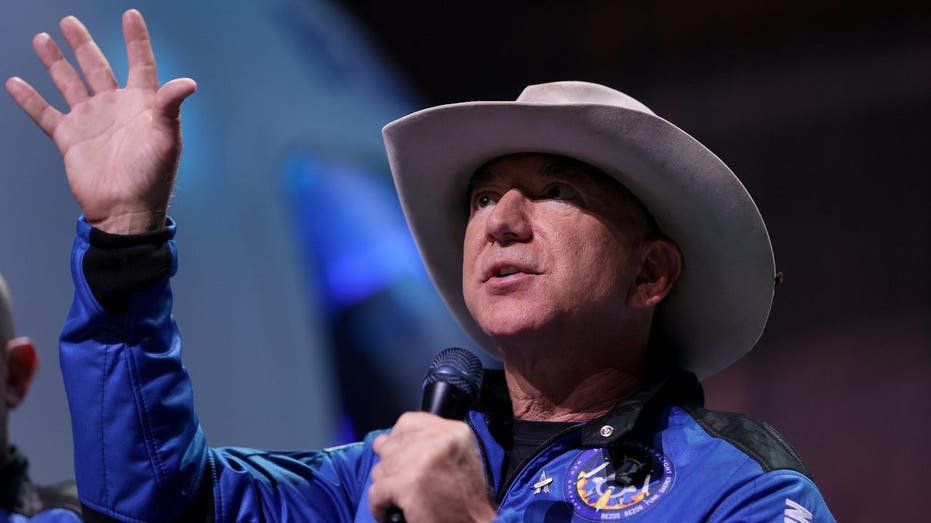Bezos' Blue Origin nabs $3.4B NASA contract to send astronauts to the moon
In 2021, NASA awarded SpaceX a $2.9B contract for a lunar lander
Bet on Elon Musk to land on Mars before NASA: Al Root
Barron's senior writer Al Root discusses how Elon Musk has revitalized the space industry and weighs in on his Mars ambitions on 'Barron's Roundtable.'
Jeff Bezos' Blue Origin on Friday won a $3.4 billion contract to build a spaceship for NASA's next astronaut mission to the moon after being passed up for the opportunity two years ago.
The National Aeronautics and Space Administration (NASA) announced that it awarded its NextSTEP-2 Appendix P Sustaining Lunar Development contract to Bezos' space venture.
In 2021, NASA awarded Elon Musk's company SpaceX a $2.9 billion contract for a lunar lander. At the time, Bezos appealed the contract to the Government Accountability Office on the grounds that there should have been multiple contracts and that the proposals weren’t evaluated correctly, but the agency rejected the request.
NASA, ROCKET LAB LAUNCH PART OF SATELLITE CONSTELLATION TO STUDY TROPICAL STORM SYSTEMS
This time, Blue Origin and its National Team partners — which includes Lockheed Martin, Draper, Boeing, Astrobotic and Honeybee Robotics — will design, develop and fly a lunar lander, called Blue Moon, that can make a precision landing anywhere on the moon’s surface.

Blue Origin's New Shepard rocket launches, carrying passengers Jeff Bezos, founder of Amazon and space tourism company Blue Origin, his brother Mark Bezos, Oliver Daemen and Wally Funk, from its spaceport near Van Horn, Texas, on July 20, 2021. (Tony Gutierrez / AP Newsroom)
NASA said the contract includes one test fight without a crew to the moon's surface before the crewed Artemis V mission, which is slated for 2029.
Blue Origin will be NASA's second provider to deliver Artemis astronauts to the lunar surface. NASA, as part of its Artemis program, has been working to return astronauts to the moon by 2024, with plans to eventually implement crewed missions to Mars.
BLUE ORIGIN FOUNDER JEFF BEZOS 'READY' FOR HISTORIC LAUNCH ON NEW SHEPARD
"We are in a golden age of human spaceflight, which is made possible by NASA’s commercial and international partnerships," NASA Administrator Bill Nelson said in regard to Friday's news. "Together, we are making an investment in the infrastructure that will pave the way to land the first astronauts on Mars."
As part of the Artemis V mission, the rocket will launch four astronauts aboard an Orion space capsule to the moon's orbit.
GET FOX BUSINESS ON THE GO BY CLICKING HERE
Blue Origin’s human landing system would take two astronauts to the Moon’s South Pole region, where they will conduct scientific and exploration activities.

Jeff Bezos speaks about his flight on Blue Origin’s New Shepard into space during a press conference in Van Horn, Texas, on July 20, 2021. (Joe Raedle/Getty Images / Getty Images)
SpaceX was previously contracted to test an initial human landing system for the Artemis III mission. SpaceX was also directed to evolve its design to meet the agency’s requirements for sustainable exploration and to demonstrate the lander on Artemis IV.
NASA said it is important to have another human landing system partner with its Artemis program because it will increase competition, reduce costs to taxpayers, support a regular cadence of lunar landings, further invest in the lunar economy and help NASA achieve its goals with space travel.
The Associated Press contributed to this report.





















